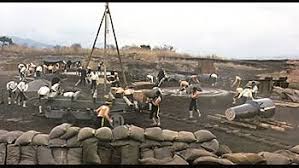The Enduring Legacy of King and Conqueror in Leadership
Introduction
The concepts of ‘king and conqueror’ have profoundly influenced leadership and governance throughout history. These archetypes not only represent power and authority but also highlight the qualities that define effective leadership. Understanding their significance allows us to appreciate the impact these figures have had on civilizations around the world.
Historical Context
The archetype of the king dates back to ancient civilisations, where monarchs held ultimate power over their subjects and lands. Conquerors, meanwhile, shaped the boundaries of empires and the cultures within them, often instilling fear, respect, and loyalty among their followers. Notable figures such as Alexander the Great and Genghis Khan exemplified this duality, combining both kingship with military prowess to expand their realms.
In contemporary society, leadership is often examined through the lens of these historical figures. Politicians, CEOs, and even social leaders may draw inspiration from such archetypes, demonstrating ambition and strategy that echo the triumphs of ancient rulers. For instance, the recent leadership style of various world leaders showcases a blend of assertive decision-making akin to that of a conqueror, alongside the diplomatic traits traditionally associated with kingship.
Modern Implications
The significance of the king and conqueror archetypes remains relevant today, especially in the context of global leadership challenges. Leaders across various sectors are assessed not just on their managerial abilities but also on their vision and capacity to inspire others. Events like the COVID-19 pandemic have tested leaders’ resolve, forcing them to make swift decisions that could be characterized as both regal and imperial.
Moreover, the implications extend into the realms of corporate governance and social enterprises, where transformative leaders adopt qualities of both kings and conquerors to foster innovation and drive change. Strategic decisions in these environments resemble the tactics employed by conquerors in warfare, albeit within a framework that values ethical considerations and stakeholder engagement.
Conclusion
The legacies of kings and conquerors continue to shape modern leadership paradigms, drawing valuable lessons from the past. As we approach an era marked by rapid change and uncertainty, the ability to embody these archetypes—demonstrating strength, vision, and an understanding of the sociopolitical landscape—is crucial for effective leadership. The combination of wisdom, courage, and strategy seen in historical leaders can guide contemporary figures seeking to leave their mark on the world.









